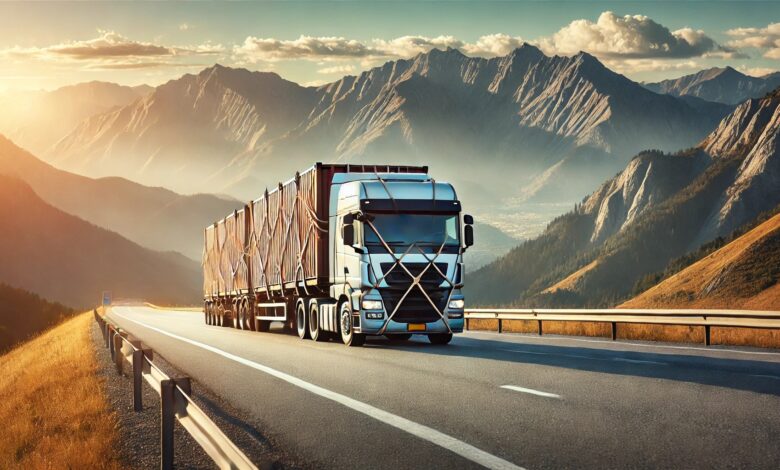Rena Monrovia When Transporting Goods by Car: Essential Tips for Safe Cargo Handling and Compliance
Learn the Best Practices for Securing Cargo and Ensuring Safety While Transporting Goods by Car

Introduction
Transporting goods by car is a common practice for businesses and individuals alike, whether it’s for moving furniture, delivering products, or transporting heavy materials. However, proper cargo securement, vehicle load safety, and adherence to regulations are essential for ensuring the safe transport of goods. This article will delve into best practices for transporting goods by car, particularly focusing on lessons learned from the Rena ship incident and its connection to shipping regulations in Monrovia. We will explore how to effectively manage cargo, comply with transportation laws, and prevent accidents during the journey.
What Is the Rena Ship Incident?
The Rena ship incident refers to a tragic event in 2011 when the container ship Rena, registered in Monrovia, Liberia, ran aground off the coast of New Zealand. This led to a massive environmental disaster, with thousands of tonnes of oil spilling into the sea. The incident brought to light the importance of following shipping regulations, especially concerning cargo securement and environmental protection. This event serves as a reminder of the potential risks involved in transport, whether by sea or land.
Cargo Securement and Vehicle Load Safety
One of the most critical aspects of transporting goods by car is ensuring that the load is properly secured. Improperly secured cargo can result in accidents, such as cargo shifting or falling off the vehicle, which can lead to serious accidents and injuries.
Best Practices for Cargo Securement
To ensure the safety of your load, follow these best practices:
-
Use Appropriate Tie-Downs: Secure cargo using ropes, straps, or chains that can withstand the weight and force of the load.
-
Cover Your Load: Use tarps or covers to prevent items from being exposed to the elements, especially when transporting sensitive goods.
-
Distribute Weight Evenly: Ensure the weight of the cargo is evenly distributed to prevent the vehicle from tipping or losing control.
-
Double-Check Before Driving: Always perform a final check to confirm that the cargo is secure and nothing is protruding beyond the vehicle’s dimensions.
The Role of Vehicle Cargo Safety Laws
Vehicle cargo safety laws vary by region, but all jurisdictions require that cargo is safely secured to prevent accidents. In Monrovia and Liberia, the Monrovia maritime regulations govern the shipping industry, including laws on container securement. These regulations also influence road transport in areas where containers are moved by land, offering guidelines on what constitutes legal and safe cargo.
Understanding Overloading and Its Risks
Overloading your vehicle is one of the most common causes of road accidents. When you exceed the vehicle’s weight limit, it affects the vehicle’s braking, handling, and stability. Not only is this dangerous for the driver, but it also violates transport compliance laws in most countries.
Vehicle Load Balancing
To prevent overloading and ensure safety, balance the load effectively across the vehicle’s axles. This minimizes stress on the suspension and tires, improving overall vehicle control.
Overload Vehicle Penalties
If you are caught overloading your vehicle, you could face fines or penalties. In some cases, authorities may even confiscate the vehicle until the cargo is unloaded to bring the weight within the legal limit. Freight transport regulations often mandate weight checks at weigh stations to ensure compliance.
Secure Transportation Techniques for Oversized Cargo
When transporting oversized or heavy items, such as furniture or machinery, special precautions are necessary. Transporting oversized cargo often requires special permits, depending on the size and weight of the goods.
Carrying Large Items by Car
If your vehicle is not designed to carry oversized loads, consider using a trailer or truck. For heavy items like construction equipment or industrial machinery, cargo insurance for transportation can protect both the cargo and the vehicle in case of damage during transport.
Container Shipping Monrovia to Road Transport
The logistics of container shipping Monrovia involve transferring goods from sea containers to road vehicles for inland transport. This transition must be done carefully to ensure the containers are securely fastened to the vehicle. Poor handling during this transition could result in damaged goods or accidents.
Monrovia Shipping Regulations and Road Transportation
Monrovia, the capital of Liberia, plays a crucial role in the international shipping industry. The Monrovia shipping industry is governed by maritime laws that also influence land-based transport. Containers from ships arriving at the Monrovia port are often transferred to trucks for inland distribution.
Monrovia Port Logistics
Monrovia port logistics include not only the handling and transport of shipping containers but also adherence to the regulations governing their movement. These logistics ensure that cargo is securely transported from the port to the destination without any delays or damage.
Shipping by Road vs Sea
When deciding whether to ship cargo by road or sea, several factors come into play, such as the size and weight of the goods, distance, and cost. Shipping by road is typically faster for short distances, but it requires more careful vehicle cargo management to ensure safety.
Common Transportation of Goods Tips
To make the process of transporting goods by car smoother and safer, consider these tips:
-
Plan Your Route: Know the best roads for your cargo. Avoid highways or bridges that may not accommodate oversized loads.
-
Prepare for Delays: Traffic, weather, and other unforeseen circumstances can cause delays. Always have contingency plans in place.
-
Check the Weather: Bad weather can make transport dangerous. Make sure to check weather reports before embarking on your journey.
FAQs
Q1: What are the key regulations for securing cargo in Monrovia?
In Monrovia, maritime regulations set by the Liberian government govern both sea and land transport, ensuring cargo is properly secured to prevent accidents. These include securing containers on vehicles and adhering to weight limits.
Q2: What are the penalties for overloading my vehicle?
If you overload your vehicle, you may face fines, penalties, and possibly have your cargo removed or the vehicle impounded. Always check your vehicle’s Gross Vehicle Weight Rating (GVWR) before loading.
Q3: How can I transport large items safely?
For transporting large items by car, ensure that the load is balanced, secured with strong straps or ropes, and that the weight does not exceed the vehicle’s capacity. Consider using a trailer for oversized loads.
Q4: Why is cargo insurance important for transportation?
Cargo insurance provides coverage in case of damage or loss of goods during transport. It’s especially important for valuable or fragile items.
Conclusion
Transporting goods by car can be a straightforward process when proper precautions are taken. By following cargo securement best practices, adhering to vehicle cargo safety laws, and being mindful of overloading, you can ensure safe and efficient transport. Learning from incidents like the Rena ship disaster also helps emphasize the importance of safety and compliance in all forms of transportation, whether by road or sea.

